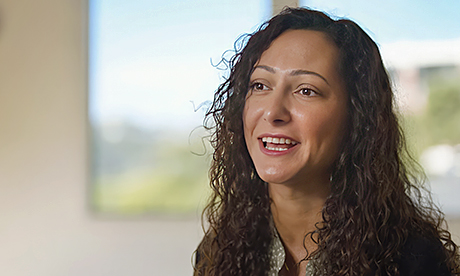Informed religious conversation and public discussions around religion could become even more scarce if the proposed cuts to the Religious Studies department at Victoria University are implemented.
Dr Sara Rahmani, a lecturer in religious studies at the university (pictured), voiced her concerns about the potential impact of eliminating the programme in a recent interview with RNZ’s Wallace Chapman.
Victoria University is currently facing a budget shortfall of $33 million, leading to the proposal to cut 260 jobs.
Among the departments under review is the Religious Studies department, which is the sole institution of its kind in New Zealand.
In her conversation with Chapman, Rahmani explained that religious studies is distinct from theology.
Instead, the programme aims to examine religion and non-religion within New Zealand.
She expressed her surprise that New Zealand does not actively engage in or encourage conversations about religion, describing this as detrimental to the nation’s overall well-being.
Rahmani further explained that religious studies explore the role of religion in people’s lives, analyses its impact on society, and delves into the influence of beliefs on behaviour, culture and social life.
She emphasised the importance of studying this subject, stating that it is often misunderstood. Consequently, the programme’s closure would be considered a significant loss for the country.
Although the Religious Studies department consists of only four staff members, Dr Rahmani emphasised that any potential cuts would have a substantial impact.
At present, the proposal includes a list of programmes that may be cut, but no definitive decisions have been made.
During the discussion, Wallace Chapman sought feedback on the relevance of religious studies in modern society. Respondents from diverse backgrounds shared their thoughts on the matter.
One agnostic contributor explained that her interest in religious studies stems from a fascination with the functioning of communities. The discipline provided her with a greater understanding of what makes people whole and well-rounded.
At the other end of the spectrum, a Catholic man with six children expressed his support for the teaching of religious studies, citing the need for a deeper understanding of humanity on a global scale. He emphasised the interconnectedness of people and the importance of comprehending the reasons behind this unity.
“We’re all interconnected. Ukraine, whatever happens in Turkey, whatever happens in Hong Kong, we’re all interconnected. And, somehow, we’ve got to understand why that is,” he told Chapman.
Another correspondent highlighted the positive impact of religious studies, stating that it broadened her worldview and fostered acceptance and tolerance towards individuals from diverse backgrounds and faiths.
The fate of the Religious Studies department at Victoria University remains uncertain as discussions and reviews are ongoing. The potential loss of this department raises concerns about the future of open dialogues and understanding surrounding religion in New Zealand.
